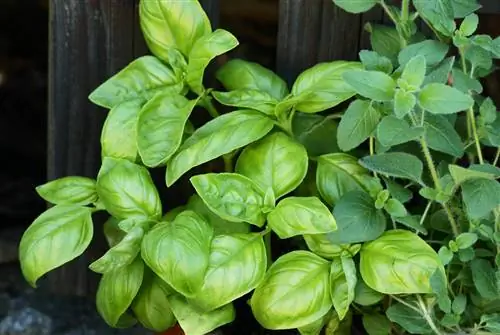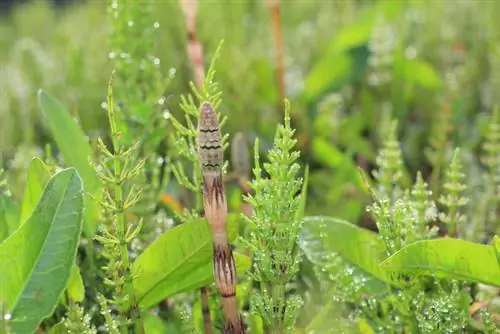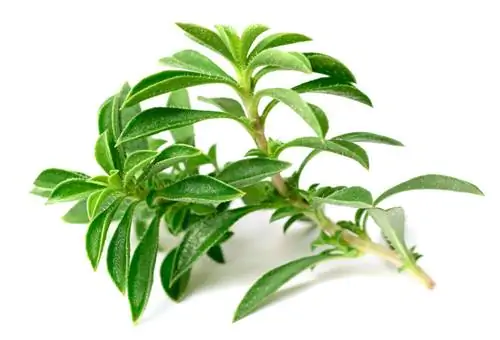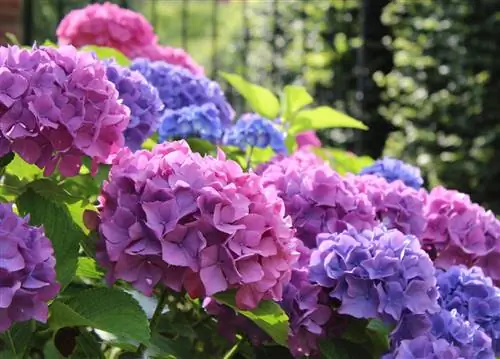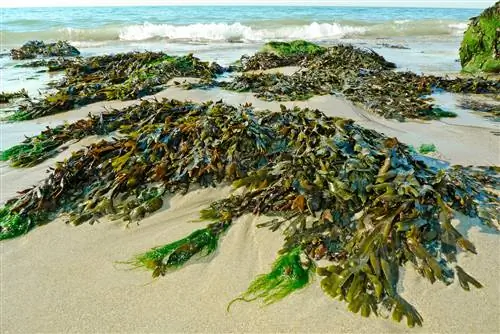- Author admin leonars@hobbygardeners.com.
- Public 2023-12-25 17:45.
- Last modified 2025-01-23 11:19.
These two types of herbs are among the most popular spices in Italian cuisine and impress with their inimitable Mediterranean aroma. In this article you will find out how oregano and basil differ and whether they can easily be exchanged for each other.
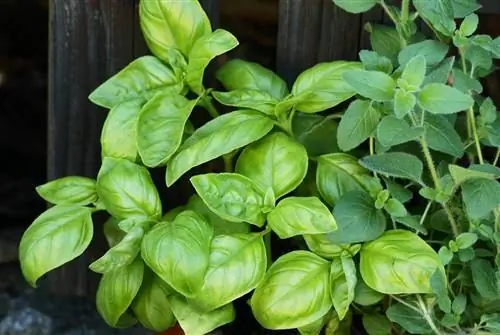
Are there differences between oregano and basil?
Oregano and basil differ from each other bothvisually and in taste. In dried form, oregano is significantly more aromatic than basil. Nevertheless, both are equally suitable for rounding off and seasoning, especially Italian dishes.
How are oregano and basil different?
A difference can be seen in thesize of the leaves- those of oregano are significantly smaller. In terms of tastefresh oregano is very slightly bitter, but also fruity and lemony, whereas basil is spicy and has a slight hint of pepperiness. Another difference is that Oregano, when dried, loses its bitterness and becomes incomparably aromatic, while basil in dried form loses its taste and its aroma cannot be compared to the fresh leaves.
Can the two herbs be interchanged?
A real1:1 exchangebetween these two herbs isnot possibleFor example, basil is a typical ingredient for pesto or sauce made from tomatoes, while oregano is often used for a hearty sauce or to season a meat dish. But when it comes to adding spice to a Mediterranean dish, you can definitely use it Use a different spice and also use thyme.
Do oregano and basil taste together?
Oregano and basiltaste very well together and can also be cultivated as neighbors in the herb bed. Both culinary herbs are at their best, especially in dishes with tomatoes, but also on pizza.
Are there differences when harvesting oregano and basil?
There areno differences in how the two herbs are best harvested. With oregano with the botanical name Origanum vulgare, which is also known as wild marjoram or real dost, as well as with basil, it is best to always cut off entire shoots above a leaf axil.
Do oregano and basil belong to the same plant family?
Oregano and basil both belong to theLamiaceae family and are both characterized by oppositely arranged leaves (i.e. pairs of leaves) and the absence of stipules. Botanically speaking, the differences between the two herbs are not great.
Tip
Dry for larger stock
If you would like to cook with Mediterranean herbs even in winter, both basil and oregano (and other herbs) are very suitable for drying. To do this, simply hang the bunches of herbs tied together overhead in a warm, dry and sufficiently airy place. After about two weeks, the herbs can then be chopped up and poured into sealable cans or jars.

